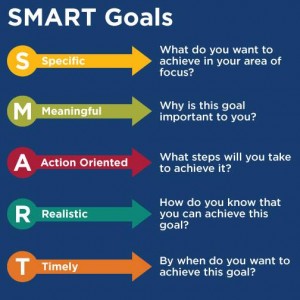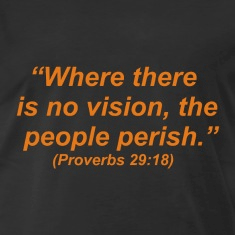In cycling, as in many walks of live, if you want to improve it’s a good idea to set goals, and then have a plan for how you reach them.
 Experts tell us that goals should be SMART, where each of the letters stands for a feature of an effective goal.
Experts tell us that goals should be SMART, where each of the letters stands for a feature of an effective goal.
Let’s see what that means for cycling.
First up is Specific. Don’t just say something bland like “I want to get better”. Be more precise and clear, so that’ll you’ll actually know when you’ve done it. Good examples are, “I want to complete a 100km Sportive in under 5 hours”, “I want to finish in the top 10 in the Tour of Ards”, or “I want to beat 25 minutes for a 10 mile time trial”.
Next is Meaningful. Many cyclists don’t question why they love cycling, but it’s worthwhile spending a bit of time thinking about. Maybe you just want to get fit again? Maybe you want to see how far you can get in the sport, or seek the honour of getting on a representative team?There are no right and wrong answers, but when you’re out suffering in the sleet in January it helps if you’re clear on why you’re doing it!
Action Oriented is about the plan you will draw up to reach your goal. This will have activities in it (such as training sessions), set against a time line. There may also be sub-goals so that you can see how you are progressing towards your main goal. We’ll talk a bit more about planning in the next article.
Realistic is very important. There is no point in saying you want to win next year’s Tour de France if you haven’t yet progressed beyond 10km time trials on the Portaferry Road. At best, that is going to be a multi-year plan, with many intermediate goals along the way. On the other hand, you don’t want to set goals that are too easy, because they won’t inspire and stretch you to achieve your best.
You also need to be realistic about the amount of time you have available to pursue your goal. If you’re young, free and single, then aiming to ride the Ras or get enough points to get a 1st category licence might be realistic and you can devote 15-20 hours per week to training. On the other hand, if you’ve got young children and a busy job then you might struggle to find 5 hours per week and a more realistic goal might be to beat 25 minutes for a 10 mile time trial.
Finally there is Timely. If a goal isn’t time bounded, then you are likely to drift. Goals around specific events (e.g. next year’s Tour of Ards or Tour of Strangford) are naturally time bounded because the events are on specific dates. But even for goals like a 25 minute 10 mile time trial, it is good to set a date, and then plan your training to build up towards that.

King David’s quote from the Book of Proverbs also applies to cycling
It’s a good idea to discuss your goals with family and friends you trust. They can give you useful feedback, and also provide support to help you achieve them.
Having set your goals, the next step is to draw up a plan to achieve them.
Next – Have a plan
